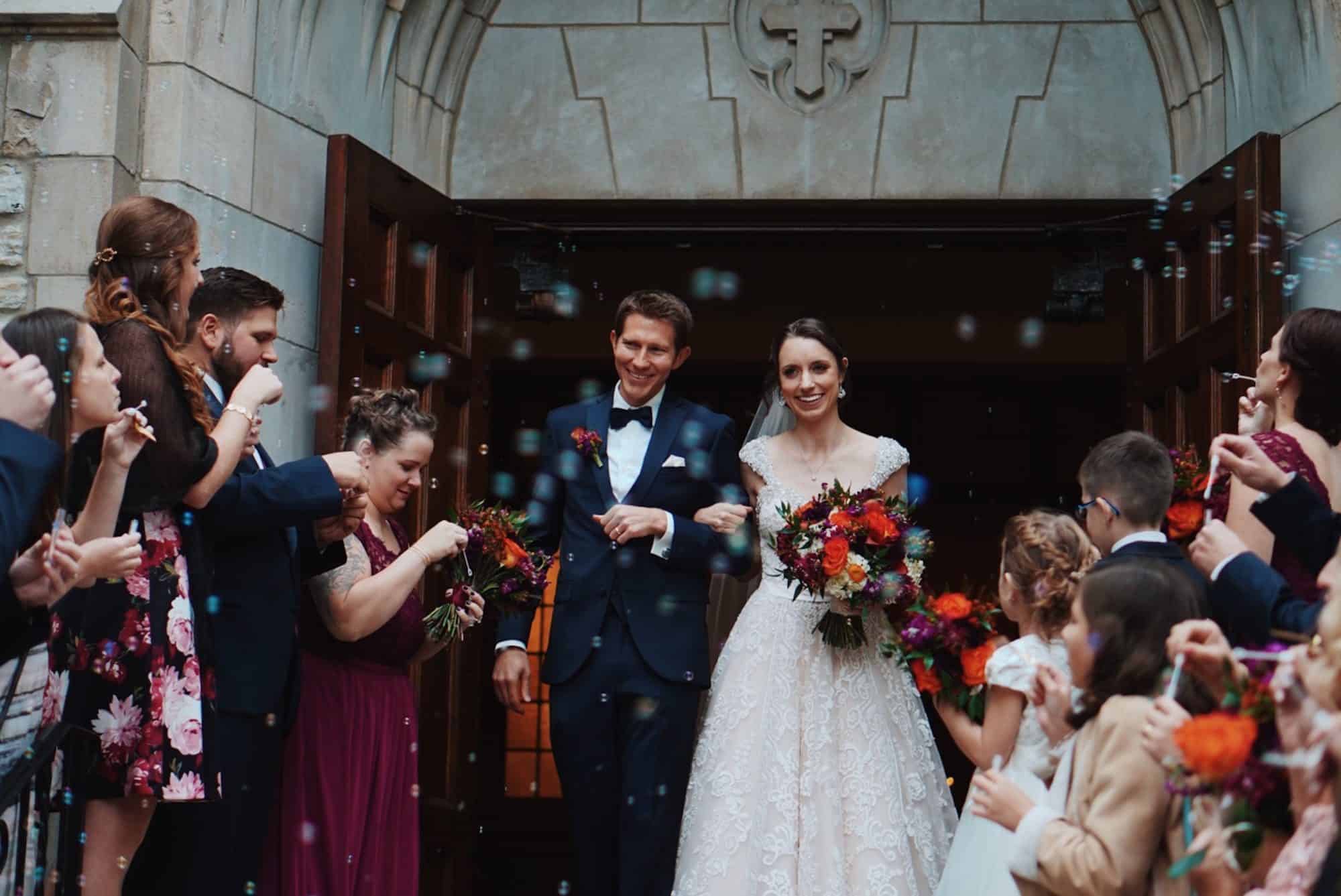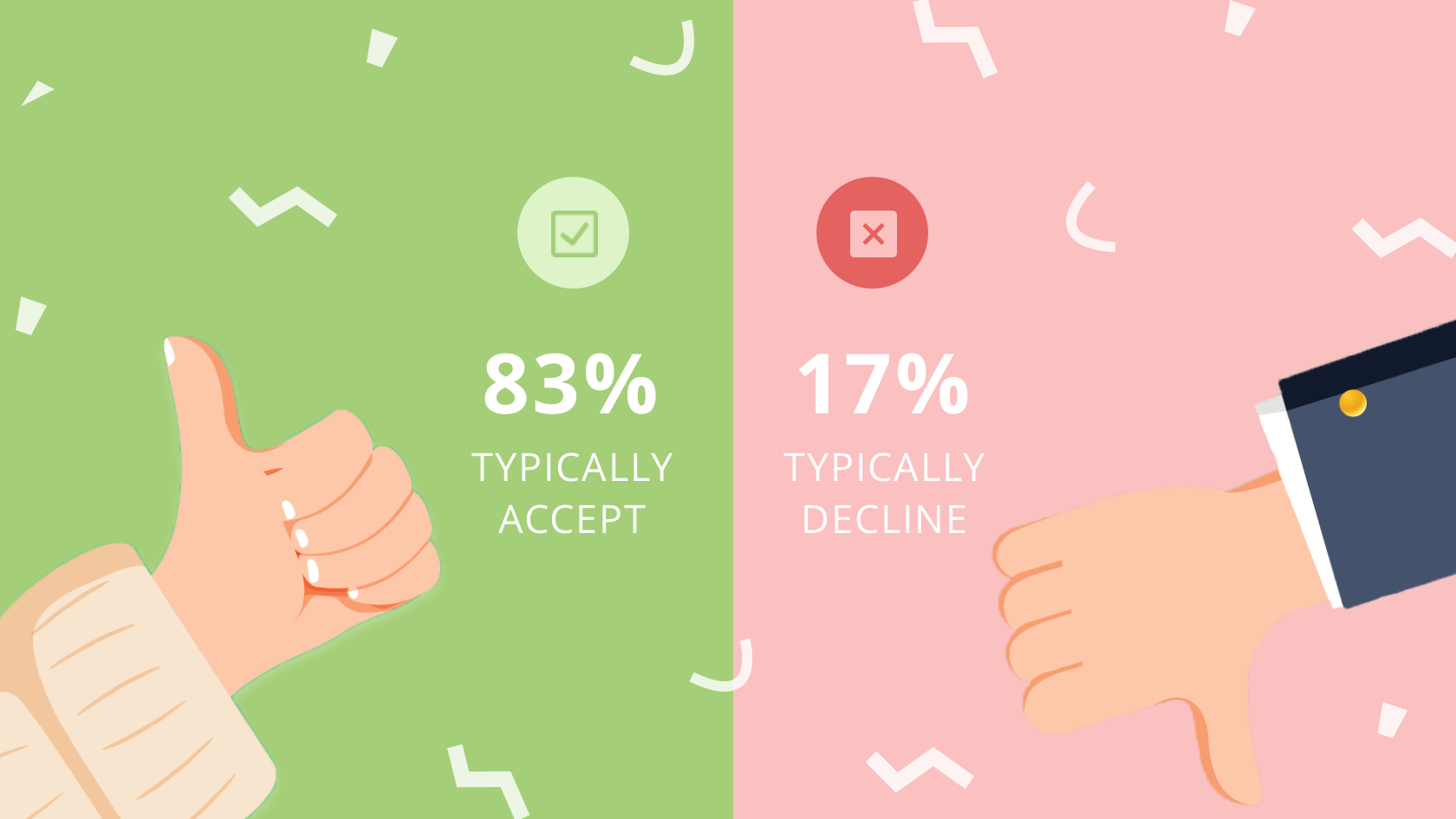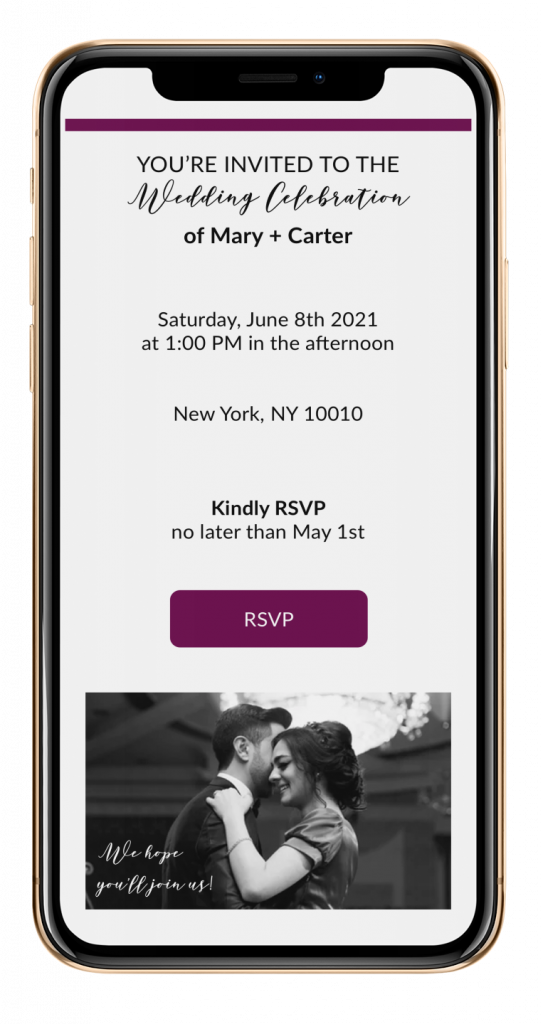Back to all posts
January 3, 2019

In the newest of our series on RSVP wedding-related questions, we had Mark the Intern crunch the numbers on a gaggle of wedding RSVPs received by RSVPify users this year to find the average percentage of guests expected to attend or decline your invitation.
Last week, we put Mark to the test trying to find a definitive, data-driven answer to the timeless question of how much time to allow guests to return their RSVP responses. After experiencing Mark’s number-crunching prowess for the first time, we were hungry for more and gave Mark an entirely new task to work on.
Mark went back to the drawing board to analyze a new set of RSVP responses to answer this week’s Big Question: How many people on your guest list, on average, can you actually expect to attend or decline to attend an upcoming event? We realized that this question long pre-dated online wedding RSVPs - heck, probably since the Romans and Greeks were sending out invitations to their bacchanal parties and festivities (well, it’s romantic to think so anyway, right?).
We went about this in a specific way. By analyzing the total number of positive (i.e. “Yes, I’ll be there!”) RSVPs, we could analyze a specific ratio of guests for an average event that you can expect to say yes (or no, or simply not respond, which we counted as a no for our purposes here). Now, of course the methodology and conclusions we reached contain a few caveats, which we will explain below. However, by analyzing thousands of guest lists and events created on our guest list management platform over the past year, we think we’ve been able to come up with some helpful data that can give you a general idea on what to expect from your overall guest list while waiting for those RSVPs to come back to you.

On average, 83 percent of guests indicated that they were coming to our users’ weddings while 17 percent of invitees declined their invitation. In other words, if you have a 100-person guest list, you can expect 83 guests on your big day and 17 people to decline. Of course, a number of factors will affect how many guests actually attend YOUR wedding day. One of the biggest factors is location. If you are having a destination wedding or most of your invitees will need to travel, you can expect a higher number of declines.
With this information and the insights that come with it in mind, here’s few tips that could help to maximize your positive RSVP responses and help shift the ratio for your own event. Remember, there are numerous factors that can contribute to the amount of positive RSVPs you can expect to receive (well, if you want to, of course) - so keep in mind that these are some general suggestions that should help, but may not ensure increased responses to your event.
We know, we tell you this so much that at this point we’re sure you’re sick of hearing it. Even if you're sending traditional paper invitations but choosing to collect RSVPs online, it's smart to give yourself a buffer. As you can imagine, the amount of people who positively RSVP to your event will be directly affected by how much advance notice you can give them to work within their personal schedules. Sure, we know anyone would be crazy for missing your special day! But that said, the more advanced notice and early instruction you can give to your guests (who in most cases, will vary significantly by age, demographic, distance, and technological prowess), the better a chance of increasing your positive RSVP wedding responses.

While there isn’t a ton of flexibility to be had in the messaging you include involving returns of an RSVP, explicitly spelling out a response date and including a polite but firm reminder of why this deadline is fixed is always a good idea.
By putting special thought in to your wedding RSVP wording (don’t worry, we already put out a helpful guide with tips on this), you can help to ensure your guests are clear and mindful of why and when you need these responses back.
As was mentioned earlier, in the age of the online wedding RSVP, many guests can be sabotaged simply by the technology required to complete the process. If you have relatives who you know to be particularly tech-averse, consider following up with them or contacting them specifically to ensure they can respond accurately and quickly. And hey, they’d probably be happy to hear from you and talk your ear off about the wedding anyway! Check out our recent post for tips on how to help your older and/or less tech-savvy guests with the online RSVP process.
While many people face a problem specifically with limiting a guest list to a fixed number that they can actually afford to entertain and feed, it’s worth considering this issue as well while developing your guest list with your fiancee and families. If a person is hovering on that “maybe we shouldn’t” cut line, consider whether you might have these issues with them ahead of time. Maybe it is worth it, difficult as the choice may be, to save yourself the indecision of someone like this before the process begins?
About the Author
Get the latest product updates, event planning tips, and industry insights — straight to your inbox.
You can unsubscribe at any time. Your email will only be used to send RSVPify updates and will never be shared.
